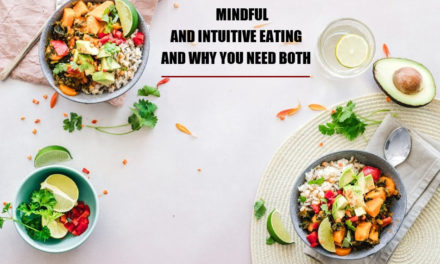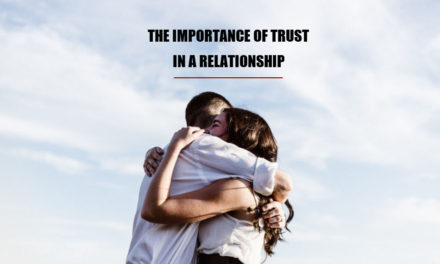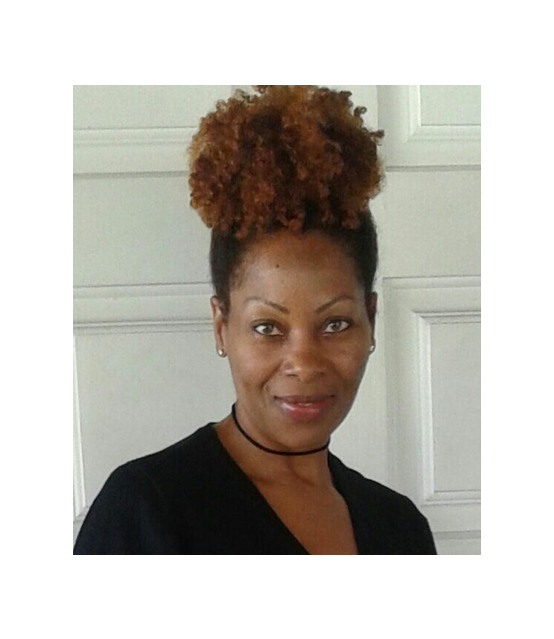In this post: Have you ever taken an audit of yourself by using self-reflection questions? It’s an important part of self care and it’s a great tool for your self growth. It allows you to take a step back and evaluate where you’re in life, what you’re doing well, and where you need to improve.
Tears streamed down my cheeks as I sat alone in my dimly lit room replaying the events of the past few months in her mind.
I had lost my job, my relationship had ended, and I was struggling to make ends meet. As I sat there, I couldn’t help but wonder where I had gone wrong.
The questions began to swirl around in my mind, each one more difficult to confront than the last.
“What do I want out of life?”
“Had I simply been going through the motions, settling for less than I deserved?”
“Did I make bad decisions?”
“Have I been too complacent?”
“And what about my own role in my relationship?
“Did I take my partner for granted, or failed to appreciate all the ways he had tried to show his love? “
“How can I use this painful experience as a springboard for growth?”
Self-reflection is an essential aspect of self care. By asking the right self-reflection questions and finding honest answers to them. you can gain clarity on your convictions, strengths, and weaknesses.
Table of Contents
What Is Self-Reflection?

Self-reflection is the process of analyzing your own thoughts, emotions, and actions with a critical eye, with the aim of developing constructive insights and getting to know yourself better.
By taking time to reflect on your experiences, you can learn from them and become more aware of yourself. This helps you gain insight into yourself and understand how you got to where you’re today.
When you take some time to reflect on your daily experiences it can help you to identify patterns in your behavior as well as your way of thinking. This in turn allows you to make changes that promote healthier relationships and behaviors.
So, Whether you’re looking to improve your work performance, strengthen your relationships, change your attitude and way of thinking, or cultivate a greater sense of mindfulness, self-reflection is an excellent way to help you achieve those goals.
Why Is Self-Reflection Important?

There are no two ways about it, self-reflection is a crucial process that can help you learn more about yourself and your life.
So, if you’re seeking greater self-awareness or simply looking to move forward in life with a clearer sense of direction, then self-reflection is a valuable ingredient for your own self-growth and development.
Here are some of the reasons why self-reflection is important:
- Helps you to evaluate yourself, your goals, and your progress,
- It can lead to greater insight into who you are and what you want out of life.
- Helps you to improve your relationships, work habits, and personal goals.
- Identify patterns of behavior or thoughts that may be hindering your progress or causing you to stress.
- Helps you to become more aware of your strengths and weaknesses
- Bring light to the areas you need to improve on.
- helps you develop resilience, and compassion for yourself and others.
- Guides you to make positive changes that improve your overall well-being.
- Allows for a greater appreciation for life.
What Are The 5 Steps for Self-reflection?

Self-reflection is a process so it takes time and practice. By following these five steps, you can gain a better understanding of yourself and take the necessary steps to grow and develop as an individual.
1. Identify the Situation
Find a quiet and comfortable space where you can be alone with your thoughts. Take time to think about a situation you have experienced and reflect on it without judgment.
It could be a recent experience, a relationship, or a pattern of behavior you’d like to change.
2. Analyze Your Thoughts and Emotions
Examine and write down your thoughts and emotions surrounding the situation, paying special attention to how you reacted or what you could have done differently.
Try to identify patterns or insights. Ask yourself questions like “What is driving these thoughts or feelings?” or “How do these thoughts or feelings impact my behavior?”
3. Consider Different Perspectives
By Considering other perspectives you’re able to step outside of your own limited viewpoint and see things from a fresh angle.
This allows you to gain new insights and perspectives that you may not have considered before, and it can help you to identify blind spots or biases that you may have.
4. Take Action
Use your insights to come up with a plan of action and make positive changes or set goals to move forward on your development journey.
Whether it’s changing a behavior, adjusting your mindset, or seeking support, take intentional steps toward growth and improvement.
5. Reflect on Your Progress
Make sure to check back in regularly and take stock of where you are, how far you’ve come and any progress you’ve made.
This can be incredibly motivating and help you stay on track. And, on the flip side reflecting on areas where you may have fallen short or encountered obstacles can also be valuable.
It can help you to identify areas where you can improve and come up with strategies to overcome any challenges you may be facing.
What Are The 4 Types Of Reflective Questions?

Self-reflective questions are a powerful strategy for finding the courage to face yourself. They demand that you explore your thoughts, emotions, and actions in a more meaningful way.
Each type of reflective question has its own unique focus. They can be used in different situations to help you to gain a better understanding of yourself and your experiences and identify areas for improvement and help you to make positive changes.
1. Awareness Questions
An awareness question is a type of reflective question that is focused on exploring your own thoughts and feelings about a particular situation or experience, rather than simply describing or evaluating a situation.
By asking yourself awareness questions, you can become more mindful of your own thought processes and gain a deeper understanding of why you think, feel, and act the way you do.
And, ultimately help you make more informed decisions and navigate complex situations more effectively.
For example:
- “What emotions am I feeling right now?”
- “How did those emotions affect my behavior?”
- “What assumptions am I making about this situation?”
- “What biases or prejudices might be influencing my perception of this situation?”
- “How is my own background and experience shaping the way I am interpreting this situation?
2. Analytical Questions
These are questions that help you to examine a particular situation or experience in order to gain a deeper understanding of it.
They can help you break down a complex situation into smaller parts, allowing you to examine and understand each aspect more closely.
And, are especially useful when you’re trying to make sense of a complex problem or situation, and need to break it down into smaller, more manageable parts.
By asking yourself analytical questions, you can identify patterns, relationships, and connections between different aspects of a situation.
This can help you gain a deeper understanding of the factors that influence a particular situation, and identify potential solutions or areas for improvement.
Not only that, but you also develop better problem-solving skills and make more informed decisions in the future.
Examples include:
- “What were the main factors that led to the outcome of this situation?”
- “What could I have done differently?”
- “How did my actions influence the outcome?”
- “What were the underlying causes of the problem in that situation? “
- “How did each factor contribute to the overall outcome?”
3. Alternative Questions
This question is focused on applying insights gained from reflection to personal growth and future decision-making, which can be extremely beneficial for learning and development.
This type of question is focused on encouraging you to reflect on the meaning or significance of your experience and can help you identify valuable lessons or perspectives that you can carry forward in the future.
By that I mean you focus on taking what you’ve learned and using it to improve your future actions or decisions.
When you ask these questions, you’re encouraging yourself or others to think critically about how the lessons learned from a particular experience can be applied to similar situations in the future. This in turn can lead to growth and development.
For Example:
- “How can I apply what I have learned from this situation to improve myself or my future actions or situations?”
- “What are the key takeaways or insights I gained from this experience or situation?”
- “What is important to me?”
- “How do I effectively manage my time and prioritize my tasks?”
- “How do I typically respond to criticism or feedback?”
- “What are some ways I can challenge myself and step out of my comfort zone?”
- “How can I better manage stress and create a healthy work-life balance?”
- “How do I approach failure or setbacks?”
- “What are some areas in which I can enhance my communication skills?”
- “What steps can I take to improve my financial situation and build a stable future?”
- “How can I foster more meaningful and supportive relationships in my life?”
4. Action Questions
These questions ask you to consider how you will apply what you have learned from your experience in the future. They encourage you to think about specific actions or changes you might make as a result of your reflection.
These type of reflective questions prompts you to consider what concrete actions you can take to improve or enhance a particular situation or outcome.
They encourage you to reflect on what you’ve learned and think about practical steps you can take to make positive changes to improve the situation or make progress toward a goal.
Here are some examples of action questions:
- “Based on what you’ve learned from this experience, what specific steps can you take to improve your performance next time?”
- “What actions will I take in the next meeting based on what I learned from the last one?”
- “What steps can I take to improve my time management skills?
- “What actions can I take today to move closer to my goals?
- “What actions can I take to improve my physical or mental well-being ?”
Self-Reflection Questions Daily

By taking a few moments each day to reflect on your actions and thoughts, you can gain valuable insights that can help you make better decisions and live a more fulfilling life.
Here’s the thing, self-reflection is an ongoing practice, and taking a few minutes each day to reflect can help you gain insight, stay connected to your values, and make meaningful changes in your life.
Let’s look at some key self-reflection questions that you can ask yourself daily.
- What did I do today that I feel proud of?
- What did I do today that I wish I had done differently?
- Did I prioritize my tasks effectively today?
- What were some of the positive interactions I had with others today?
- Were there any negative interactions I had with others? What could I have done differently?
- How did I take care of myself today (physically, emotionally, mentally)?
- What emotions did I experience today? Were there any recurring themes?
- Did I take steps toward my long-term goals today?
- What did I learn about myself today?
- How can I apply what I learned today to improve myself or my situation in the future?
- What am I grateful for today?
- What are some of my successes from the past week?
- What could I have done better today?
- How have I been treating those around me, and is there anything I can do to improve my relationships?
- What are some things that bring me joy and how can I incorporate more of them into my life?
- What did I learn from my experiences today?
- How did I handle challenging situations today?
- What could I have done differently to improve my day?
- Did I take care of my physical, emotional, and mental well-being today?
- What are my biggest accomplishments and challenges of the day?
- How did I contribute to the happiness and well-being of others today?
- Did I spend my time today on things that are important to me?
- How can I make tomorrow even better?
- What do I want to accomplish tomorrow, and how will I go about doing it?
- What are some things that are causing me stress or anxiety, and how can I address them?
Self-Reflection Questions For Personal Growth

Remember that self-reflection is an ongoing process, so continue to ask yourself these questions regularly and adjust your actions and habits accordingly.
- What are some accomplishments I’m proud of and why?
- What are some areas in my life where I feel stuck, and what can I do to move forward?
- What are some things I’m grateful for in my life right now?
- How am I contributing to the world around me?
- What are some limiting beliefs I have about myself, and how can I work to overcome them?
- Am I being true to my values in the way I’m living my life?
- How am I handling stress and challenges, and can I improve my coping skills?
- What are some ways I can challenge myself to grow and learn?
- Am I being kind to myself and practicing self-compassion?
- What are my strengths, and how can I utilize them to achieve my goals?
- What are my weaknesses, and how can I work on improving them?
- What are my values and beliefs, and how do they guide my decisions and actions?
- Am I living my life in alignment with my values and beliefs?
- What habits do I have that are helping me towards my goals, and what habits do I need to change to achieve my goals?
- What have been my biggest accomplishments, and how did I achieve them?
- What have been my biggest failures, and what did I learn from them?
- What are some accomplishments I’m proud of, and how can I build on them?
- How do I maintain a healthy work-life balance, and what changes can I make to improve it?
Self-Reflection Questions For Professional Development

Self-reflection is important for your professional development as it helps you gain insights into your strengths and weaknesses and identify areas for improvement.
You can use these questions to periodically track your progress and make adjustments as needed.
Here are some self-reflection questions that can guide your professional development:
- What are my strengths and weaknesses in my current role?
- What skills or knowledge do I need to acquire to advance in my career?
- How can I improve my communication skills with my colleagues, supervisors and clients?
- What accomplishments have I made in my current role, and how can I build on them?
- What are my short-term and long-term career goals, and how can I work towards achieving them?
- How do I handle difficult situations or conflicts in the workplace, and how can I improve my approach?
- What feedback have I received from colleagues or supervisors, and how can I use it to grow professionally?
- How can I better manage my time and prioritize tasks to increase productivity?
- How can I contribute to the success of my team and the organization as a whole?
- What are my professional goals? Are they aligned with my personal values and vision?
- What are my strengths, and how can I use them to advance my career?
- What areas do I need to improve, and what steps can I take to develop those skills?
- How do I handle stress and pressure, and what coping mechanisms do I use?
- What are my blind spots, and how can I become more aware of them?
- What challenges have I faced in my career, and how have I overcome them?
- What can I do to continue learning and growing professionally?
- How do I balance my personal and professional life, and what changes can I make to improve that balance?
Self Reflection Questions For Mental Health

Self-reflection is an essential aspect of your mental health and well-being. It’s not meant to be a source of self-criticism or judgment.
Instead, it’s an opportunity to learn about yourself, grow, and make positive changes in your life.
Here are some questions you may find helpful to ask yourself to reflect on your mental health :
- How am I feeling right now, and what might be contributing to these emotions?
- What are some of my most significant stressors or triggers, and how can I manage them effectively?
- Have I been taking care of myself properly? Am I getting enough sleep, exercise, and nourishing food?
- Do I have any negative patterns or habits that I need to address, and how can I start making positive changes?
- Am I engaging in activities or hobbies that bring me joy and fulfillment, or am I neglecting my passions?
- How do I cope with challenging situations or emotions, and are these coping mechanisms healthy?
- Am I maintaining positive relationships with my loved ones and seeking support when I need it?
- How can I practice self-compassion and self-care in my daily life?
- Am I taking care of my physical and emotional needs?
- What are my strengths, and how can I use them to cope with challenges?
- How do I respond to stress, and are there healthier ways I can cope?
- Am I setting realistic expectations for myself, or am I putting too much pressure on myself?
- How do my relationships affect my mental health, and are there any changes I need to make in those relationships?
- Am I seeking help and support when I need it, or am I trying to handle everything on my own?
Self- Reflection Questions For Relationships

Regularly asking yourself questions about your relationships is great for maintaining healthy and fulfilling relationships.
By taking the time to look inward and evaluate your thoughts, feelings, and behaviors, you can identify areas for growth and improve your communication and connection with others and can help you grow and improve in your bonds.
Here are some self-reflection questions to consider when it comes to relationships:
- What are my expectations for this relationship? Are they realistic?
- How do I communicate with my partner, family and friends? Am I clear and direct, or do I tend to beat around the bush?
- Am I willing to compromise? How much am I willing to compromise for the relationship to work?
- How do I handle conflicts or disagreements? Am I able to listen to my loved ones perspectives and find common ground?
- What are my strengths and weaknesses in these relationships? How can I build on my strengths and work on my weaknesses?
- Am I being true to myself in these relationships? Am I able to express my needs and wants?
- How do I show my love and appreciation for my loved ones? Are my actions aligned with my words?
- What have I learned from past relationships that can help me with these?
- How do I prioritize the relationships in my life? Are they getting the attention and effort they deserve?
- What steps can I take to make my relationships stronger and more fulfilling?
- Am I being honest and open in my communication with my partner, family and friends?
- Do I prioritize my partner’s needs and feelings in the relationship?
- Am I able to effectively manage conflict and disagreements with my loved ones?
- Do I show my appreciation and gratitude towards my loved ones regularly?
- Am I being supportive of my partner’s goals and dreams?
- Are my expectations realistic and fair in the relationship?
- Do I take responsibility for my own actions and apologize when I am wrong?
- Am I able to set healthy boundaries in my relationships?
- Do I make an effort to actively listen and understand my loved ones perspectives?
- Am I able to express my emotions and vulnerabilities with my loved ones in a healthy way?
- What are my core values and how do they align with my partner’s?
- How do I typically handle conflicts and disagreements with my loved ones? Is there room for improvement?
- Am I being honest with myself and my partner about my feelings and needs?
- What are some patterns or habits that I have noticed in my past relationships that may be affecting my current one?
- How do I show love and appreciation for my loved ones? Is there more that I can do to make them feel valued and supported?
- Am I making assumptions about my partner’s thoughts or feelings without checking in with them first?
- How do I communicate my boundaries and expectations to my partner? Do I feel comfortable advocating for myself in the relationship?
- Am I taking responsibility for my own happiness and well-being, or am I relying solely on my partner to fulfill me?
- How do I handle feedback or criticism from my partner? Am I open to constructive feedback, or do I become defensive?
- Do I feel secure and respected in the relationship, or are there underlying trust issues that need to be addressed?
Self Reflection Questions For Stress

Self-reflection is an effective way to manage your stress as it allows you to identify the root causes of your stress and take necessary steps to address them.
Take your time, be honest with yourself, and use your answers to develop a plan for reducing your stress and living a happier, healthier life.
Here are some questions you can ask yourself to help identify the sources of your stress and develop strategies for coping:
- What situations or events tend to trigger my stress?
- How do I typically react to stress? Do I withdraw, become irritable, or feel overwhelmed?
- What coping strategies have worked well for me in the past? Are there new strategies I could try?
- Am I taking care of my physical health? Am I eating well, exercising regularly, and getting enough sleep?
- Am I setting realistic expectations for myself? Am I taking on too much, or not asking for help when I need it?
- Am I taking time for self-care and relaxation? Do I have hobbies or activities that help me unwind?
- Am I giving myself permission to make mistakes and learn from them?
- Am I holding onto negative thoughts or beliefs that are contributing to my stress? How can I challenge and reframe those thoughts?
- Am I taking time to reflect on my values and priorities?
- Do I have a support system in place? Who can I turn to for help when I need it?
- Am I prioritizing my time effectively?
- Am I managing my workload effectively?
- Am I using effective coping strategies (e.g., deep breathing, mindfulness, meditation, etc.) to manage my stress?
- Am I making time for activities that I enjoy and that help me relax?
- What changes can I make in my life to reduce my stress levels?
Self Reflection Questions After A Breakup

Going through a breakup can be a difficult and emotional experience, but it can also be a valuable opportunity for self-reflection and growth.
Don’t forget to be gentle with yourself as you process your emotions and give yourself the time and space you need to heal.
Here are some self-reflection questions that may be helpful to ask yourself during this time:
- What were the reasons for the break-up? Be honest with yourself and try to understand what led to the end of the relationship.
- What role did I play in the breakup?
- Did I contribute to the issues in the relationship? If so, how can I work on improving those behaviors in the future?
- What did I learn from this relationship? Were there positive experiences or lessons that I can take away from it?
- What do I need right now? Take the time to check in with yourself and assess what you need emotionally, physically, and mentally to move forward.
- What are my goals and aspirations for my life moving forward? Use this time as an opportunity to re-evaluate what you want and prioritize your own growth and well-being.
- What did I learn about myself in this relationship?
- What were the strengths and weaknesses of the relationship?
- What were my contributions to the breakup?
- What do I need in a future relationship to feel happy and fulfilled?
- How can I use this experience to grow as a person?
- What did I learn about my communication and conflict-resolution skills?
- What were my expectations in this relationship, and were they realistic?
- What patterns or behaviors do I need to change to have a healthier relationship in the future?
- How can I take care of myself emotionally during this time of transition?
- What are some positive steps I can take to move forward and create the life I want?
Conclusion On Self Reflection Questions
Self-reflection can be challenging at first, but it’s extremely valuable for your self-growth. It requires bravery, vulnerability, and honesty with yourself.
One thing to keep in mind is that these questions are not universal, and it’s crucial to identify your specific areas of focus.
They will force you to confront the innermost parts of yourself including your fears, your insecurities, your deepest desires, and all those parts that you often try to ignore or bury beneath the surface.
But it’s through this process of introspection that you can gain a new found appreciation for who you are and what you want in life.
How often do you do self reflection? Comment below!























